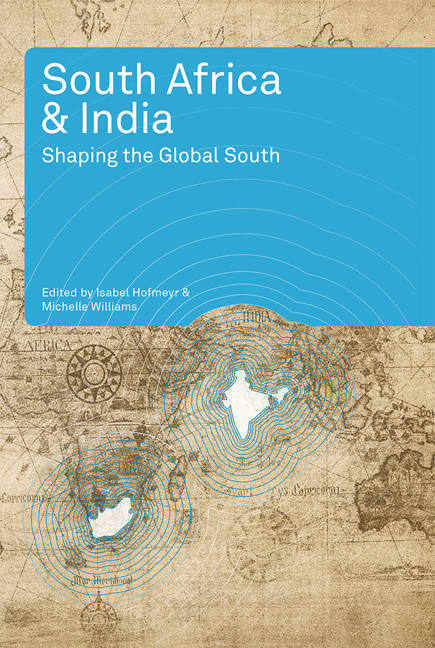Book contents
- Frontmatter
- Contents
- Acknowledgements
- Abbreviations and Acronyms
- Introduction
- Historical Connections
- Chapter 1 Gandhi's Printing Press: Indian Ocean Print Cultures and Cosmopolitanisms
- Chapter 2 Steamship Empire: Asian, African and British Sailors in the Merchant Marine c. 1880–1945
- Chapter 3 The Interlocking Worlds of the Anglo-Boer War in South Africa and India
- Chapter 4 The Disquieting of History: Portuguese (De)Colonisation and Goan Migration in the Indian Ocean
- Chapter 5 Monty … Meets Gandhi … Meets Mandela: The Dilemma of Non-violent Resisters in South Africa, 1940–60
- Socio-political Comparisons
- Conclusion
- Notes and References
- About the Authors
- Index
Chapter 3 - The Interlocking Worlds of the Anglo-Boer War in South Africa and India
from Historical Connections
Published online by Cambridge University Press: 21 April 2018
- Frontmatter
- Contents
- Acknowledgements
- Abbreviations and Acronyms
- Introduction
- Historical Connections
- Chapter 1 Gandhi's Printing Press: Indian Ocean Print Cultures and Cosmopolitanisms
- Chapter 2 Steamship Empire: Asian, African and British Sailors in the Merchant Marine c. 1880–1945
- Chapter 3 The Interlocking Worlds of the Anglo-Boer War in South Africa and India
- Chapter 4 The Disquieting of History: Portuguese (De)Colonisation and Goan Migration in the Indian Ocean
- Chapter 5 Monty … Meets Gandhi … Meets Mandela: The Dilemma of Non-violent Resisters in South Africa, 1940–60
- Socio-political Comparisons
- Conclusion
- Notes and References
- About the Authors
- Index
Summary
Internationalising national histories
The Anglo-Boer War was an international event. This statement may seem unstartling given the way global events, such as the invasion of Iraq or the attacks on New York and Washington DC on 11 September 2001, keep occurring today. The distinction of this war is that it is one of the first events of this kind. Symbolically straddling the last two centuries (1899–1902), as if it were foreshadowing the contemporary moment of our modernity, the war was notable, among other things, for actively involving people from five continents and for provoking debates in separate political circles, many of them located in countries that had no direct stake in its outcome. It was also international in the simple sense of providing a serious spectacle that was closely covered by newspapers of different countries. The course of the war was sensational. The British – the world imperial power, for whom the Boers seemed no match – surprisingly faced a series of reversals at the outset, a trend that culminated in the ‘Black Week’ of December 1899, when British forces were defeated in three important battles. They recovered, but after having defeated the Boer conventional armies by June 1901 they found the guerrilla tactics of the Boer commandos too difficult to handle by conventional means. British frustration inspired their deployment of catastrophic technologies of violence that included scorched earth policies and the use of concentration camps for Boer children and women, as well as African families.
In small or large measure, the Anglo-Boer War changed lives and histories in different parts of the world. Debates occurred among European socialists on the nature and implications of capitalist colonial transformation of pre-capitalist systems. What effect did colonialism have on capitalism? Was it ‘progressive’? (Kaarsholm, 1988). More immediate quarrels were enacted in countries that participated in the war. Troops were sent from New Zealand, Canada, Australia, India and, of course, Britain, while a small international contingent of volunteers from Europe joined the Boers out of solidarity with their cause.
- Type
- Chapter
- Information
- South Africa and IndiaShaping the Global South, pp. 56 - 81Publisher: Wits University PressPrint publication year: 2011

